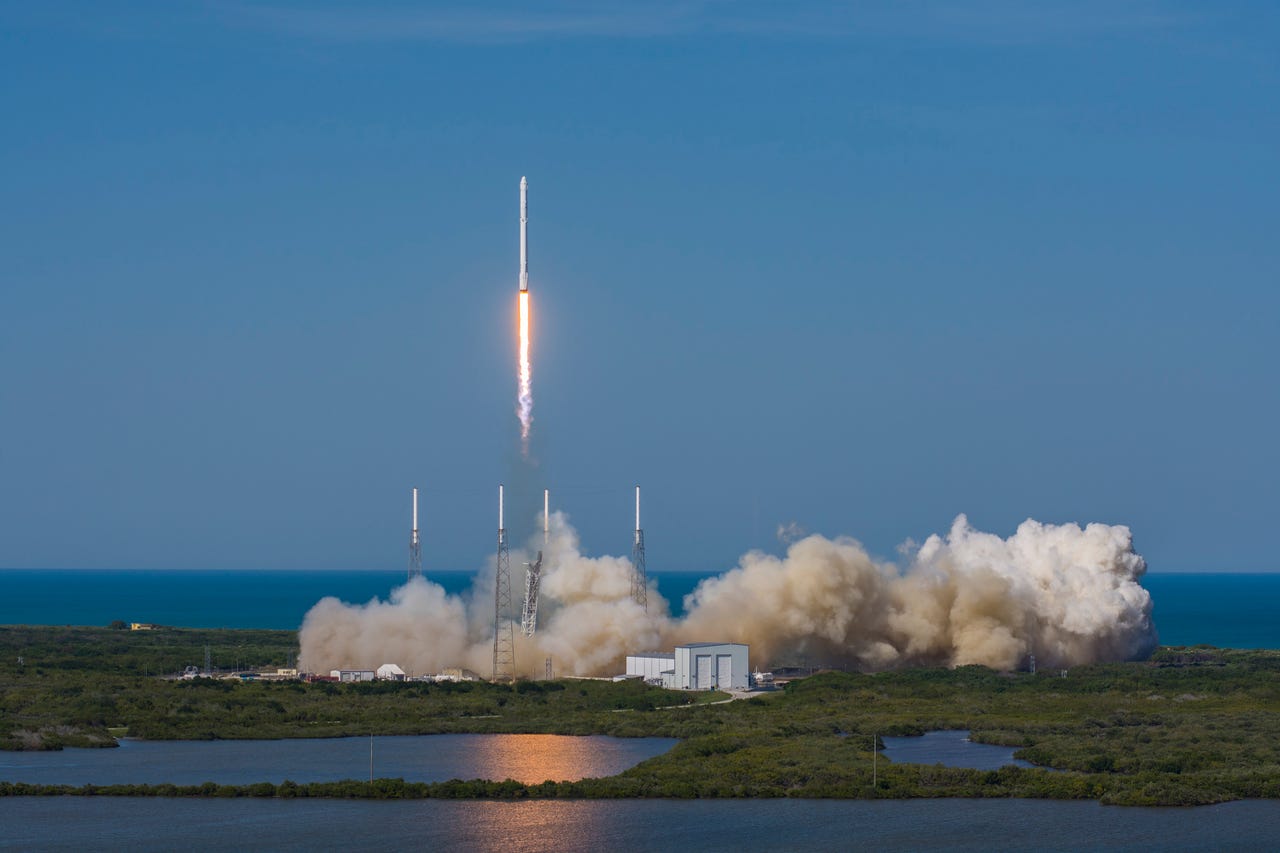SpaceX approved to send over 7,000 satellites into orbit


The US Federal Communications Commission (FCC) has given SpaceX authorisation to construct, deploy, and operate in excess of 7,000 satellites into very-low-Earth orbit, expected to boost internet connectivity across the globe.
The FCC also granted SpaceX's request to add the 37.5-42.0 GHz and 47.2-50.2 GHz frequency bands to its previously authorised non-geostationary satellite orbit (NGSO) constellation.
The authorisation allows SpaceX to expand its geographic coverage and gives the aerospace startup the green light to support broadband and communications services for residential, commercial, institutional, governmental, and professional users, globally.
Elon Musk's company was given authorisation for NGSO satellite activities alongside Kepler Communications, Telesat Canada, and LeoSat.
The FCC granted Kepler conditional US market access, allowing the Toronto-based company to offer global connectivity for the Internet of Things. The ruling also gave the company approval to use its proposed constellation of 140 NGSO satellites in the 10.7-12.7 GHz and 14.0-14.5 GHz frequency bands.
Telesat was similarly granted conditional US market access in the 37.5-42.0 GHz and 47.2- 50.2 GHz frequency bands, with the FCC nod enabling the Ottawa headquartered company to offer high-speed, low-latency communication services across the US using its proposed constellation of 117 NGSO satellites.
US market access was also given to Washington DC-based LeoSat to operate its 78 NGSO satellites in the 17.8-18.6 GHz, 18.8-19.4 GHz, 19.6-20.2 GHz, 27.5- 29.1 GHz, and 29.5-30.0 GHz frequency bands.
In total, the FCC has granted 13 market access requests and satellite applications to nine companies for NGSO FSS constellations seeking authority to provide "next-generation connectivity" across the country in the past 18 months.
The FCC said approval to the four companies on Thursday will enhance competition among existing and future FSS satellite systems.
"I'm excited to see what services these proposed constellations have to offer," said FCC Chairman Ajit Pai in an email statement to ZDNet's sister site CNET. "Our approach to these applications reflects this commission's fundamental approach: encourage the private sector to invest and innovate and allow market forces to deliver value to American consumers."
Authorisation comes as SpaceX successfully launched its 18th rocket into space from NASA's Kennedy Space Center in Florida on Thursday, with a Falcon 9 rocket lifting Qatar's Es'hail 2 communications satellite into orbit.
The satellite provides government and private sector communications across the Middle East, including direct-to-home television and data services.
RELATED COVERAGE
- SpaceX to launch internet from the sky
- It's Business Time: Rocket Lab mission finally launches from New Zealand
- Japanese startup rocket explodes in flames
- SpaceX's Starlink takes a big step forward in delivering internet from the sky
- The Moon is getting a 4G network next year
- SpaceX Falcon Heavy test: Sacrificing Teslas on the altar of progress and inspiration
- NASA's unsung heroes: The Apollo coders who put men on the moon (TechRepublic)
- SpaceX plan for global satellite internet service approved by FCC (TechRepublic)